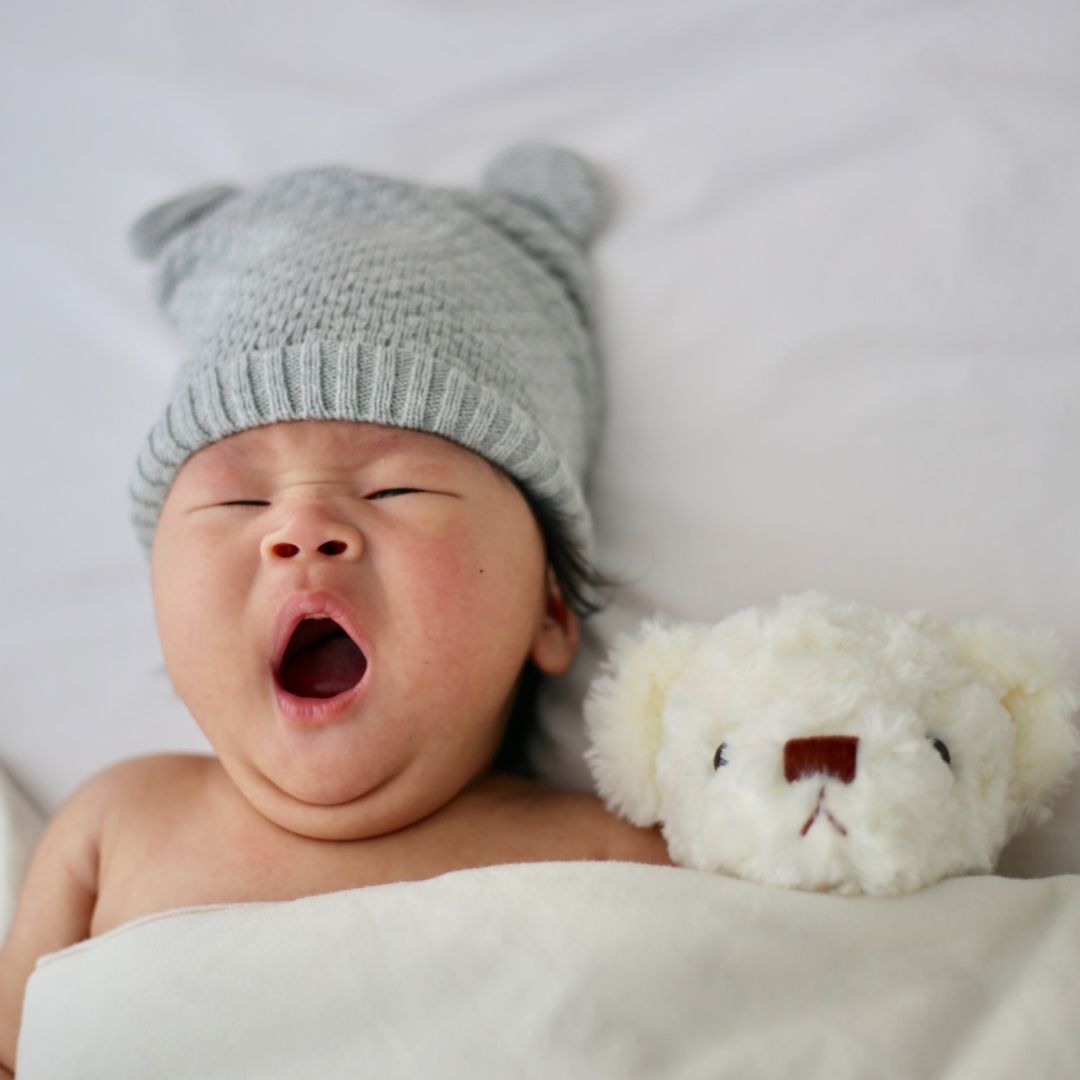Your Cart is Empty
Gift Sets
Categories

The Importance of Sleep for Your Baby's Development - Tips for Creating Healthy Sleep Habits
by Adrian Ma November 09, 2023 4 min read
As parents, we constantly strive to give our little ones the best possible care, ensuring their health and happiness. One essential, yet often overlooked, aspect of a baby's overall well-being is their sleep. Proper sleep plays a crucial role in a baby's physical, emotional, and cognitive development and is vital from the newborn stage all the way through toddlerhood. For parents, understanding the importance of sleep and adopting strategies for fostering healthy sleep habits in their child can make a significant difference in their baby's growth and overall well-being.
Sleep is not merely a passive state of rest; it is during this crucial time that the brain consolidates and processes information, forms connections, and undergoes vital restorative processes. For babies, a significant portion of their growth and development occurs during their sleep, including hormone regulation, immune system support, and cognitive function enhancement. A well-rested baby is more alert, better able to learn from the world around them, and is more emotionally stable.
Aside from being the foundation of healthy development, cultivating proper sleep habits in your baby can also contribute to a happier household. Sleep-deprived babies can become fussy and irritable, leading to a more stressful environment for the whole family. As such, it is essential to encourage good sleep hygiene for your little one from the outset.
In this article, we will delve into the importance of sleep for your baby's development and provide practical tips for creating a soothing sleep environment and establishing consistent bedtime routines. By fostering healthy sleep habits early in your baby's life, both you and your baby will be rewarded with a more pleasant and harmonious home life that encourages growth and happiness.
Understanding Your Baby's Sleep Needs
To create the optimal sleep environment for your baby, it is essential first to understand their unique sleep needs. At different stages of their development, babies require varying amounts of sleep. Newborns tend to sleep for 16-18 hours a day, with sleep periods lasting from 2-4 hours at a time. Meanwhile, infants between the ages of four months and one year require 12-16 hours of sleep per day, including naps.
As your baby grows and reaches the toddler stage, their sleep requirements will lessen. Toddlers aged one to two years typically need 11-14 hours of sleep per day, with one or two naps still included in their daily routine. By knowing your baby's specific sleep needs, you can create a schedule and sleep environment to facilitate their healthy development.
Create a Relaxing Sleep Environment
1. Choose the Right Bedding and Sleepwear
Invest in quality, comfortable bedding and sleepwear for your baby that is soft, breathable, and safe. Organic cotton fabrics, like those found in The Wee Bean's collections, are hypoallergenic and perfect for sensitive skin, reducing irritation and increasing your baby's comfort. Avoid adding any loose blankets, pillows, or stuffed animals in the cot with your baby, as these can pose a suffocation risk.
2. Ensure a Suitable Room Temperature
A cool and consistent room temperature of around 16-20°C (60-68°F) is ideal for your baby's sleep. Make sure the room is well-ventilated, and consider using a fan or air purifier to maintain a comfortable, clean environment.
3. Maintain a Dark and Quiet Space
Minimize disruptions to your baby's sleep by keeping their room as dark and quiet as possible. Blackout curtains, white noise machines, or a soft lullaby can help minimize disturbances from outside noise and light.
Establish Consistent Sleep Routines
1. Regulate Bedtime and Nap Times
Create a regular bedtime routine and stick to consistent nap times, as doing so can help regulate your baby's internal clock and promote better sleep patterns. Pay attention to your baby's sleep cues – fussiness, rubbing eyes, or yawning – to help determine the best times for naps and bedtime.
2. Develop a Pre-Sleep Ritual
A calming pre-sleep routine helps signal to your baby that it's time to settle down and rest. Your ritual might include a warm bath, bedtime story, gentle lullaby, or soothing massage. Be consistent with your pre-sleep ritual, as familiarity helps promote a sense of security and comfort for your baby.
3. Teach Self-Soothing Techniques
Encourage your baby to fall asleep independently by including self-soothing methods in their bedtime routine. You might give them a soft, age-appropriate comfort object to snuggle with, or provide gentle pats or shushing sounds to help them drift off to sleep.
Navigating Infrequent Sleep Challenges
Despite establishing healthy sleep habits, occasional sleep disturbances can still occur, such as during teething, illnesses, or growth spurts. Remain flexible, patient, and consistent during these times, adjusting your baby's sleep routine as needed to accommodate their changing needs.
Conclusion
Prioritizing sleep in your baby's early years is crucial for their healthy development, from supporting physical growth to fostering emotional and cognitive well-being. By understanding your baby's sleep needs and creating a comfortable sleep environment and consistent routines, you can set the stage for a well-rested, thriving, and content baby.
Ready to begin your journey toward better sleep for your little one? Dive into our article for expert advice on creating the perfect sleep environment and routine for your baby. And don't forget to browse The Wee Bean's collection of organic, hypoallergenic bedding andbamboo baby pajamas for optimal comfort and skin health.
Leave a comment
Comments will be approved before showing up.
Also in Latest Blog Posts

Bean of the Month - February 2026
by Sumin Yoo February 27, 2026 2 min read
Meet 3-month-oldOllie, our February bean of the Month! This little water baby from Hong Kong finds pure joy during his bath time. Dive in to discover her trusted pick and heartfelt advice for new moms navigating those early months!

5 Common Newborn Skin Concerns and How to Address Them
by Adrian Ma February 24, 2026 6 min read
Bringing your newborn home is magical. It is also the moment you start noticing everything. Newborn skin is thinner, more delicate, and still developing. Because of this, many completely normal newborn skin changes can look alarming. Let us walk through the five most common conditions and exactly how to handle them confidently.

Long Lasting Organic Baby Clothes: Washing and Care Tips for Clothes That Truly Last
by Adrian Ma February 06, 2026 7 min read
Organic baby clothing is designed to be gentle on delicate skin, free from harsh chemicals, and made with natural fibers that breathe and soften over time. With the right care, these garments can last far beyond the newborn stage and become meaningful pieces passed down through siblings or even gifted to another family. This guide walks you through exactly how to wash, dry, and store organic baby clothes so they maintain their quality and comfort for the long run.
Recently viewed products
Sign up to get 15% OFF your first order
Sign up to get the latest on sales, new releases and more …
